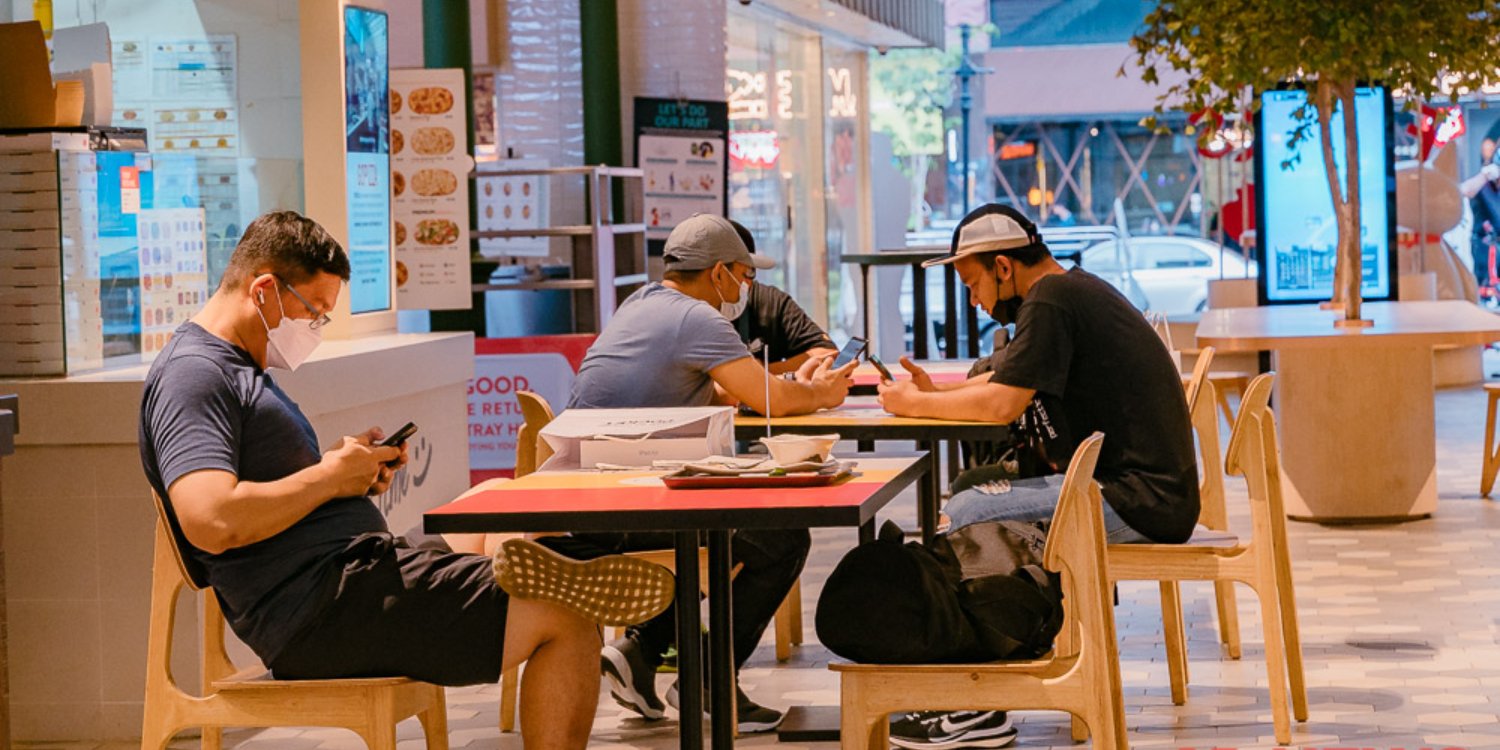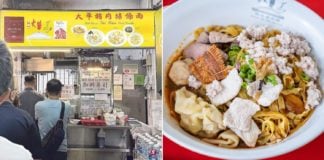CNY surcharges arise due to cost factors and demand, according to expert
Earlier this month (February), Chinese eatery White Restaurant sparked controversy when it implemented a 10% Chinese New Year (CNY) surcharge ahead of the festive season.
Applicable for two out of eight outlets from 6 to 19 Feb, a customer had taken to Facebook calling it “crazy profiteering”. White Restaurant has since clarified that this was only implemented in outlets where service charge is not normally imposed, to help buffer costs.
This begs the question: are restaurants simply trying to make a quick buck from the situation, or are their concerns truly valid? In the same vein, how should consumers react?
Some eateries say they had no choice in the matter, as remaining operational during the CNY period incurs higher costs due to manpower constraints.
White Restaurant, for example, cited increased expenditures incurred due to higher labour costs and raw material costs. Casual eatery Qiji said it has consistently levied a 10 per cent surcharge during CNY throughout the years to incentivise employees to work during the festive season.
The surcharge will contribute to the higher pay that employees will receive if they work during this period.
Imposing CNY surcharge not industry-wide practice, depends on eateries
Despite rising costs, some restaurant owners MS News spoke to said they have not implemented surcharges due to several reasons.
One owner said he wanted to avoid adding more costs to customers, while another said he wanted to avoid the hassle of employees needing to implement the surcharge during busy periods.
Daniel Tan, the founder of OK Chicken Rice and Humfull Prawn Laksa, told MS News that his 10 eateries did not have a CNY surcharge this year.

Source: Google Maps
This is despite the fact that he acknowledged costs have been “continually increasing” since 2023 due to several worldwide phenomena and Singapore raising GST by two percentage points in two years.
Mr Tan said, thankfully, the effects have been moderate for his business. “Our costs do not increase during CNY as trade items are usually fixed and this applies to us,” he said.
He elaborated that items such as rice and chicken usually have fixed prices, unlike seasonal items such as certain fish.
He also said imposing a temporary surcharge can be confusing, and some staff members would forget about it, too.
In previous years, this has led to unhappiness among him and his staff, he explained, since the balance would not tally if the surcharge is only selectively applied.
Mr Tan also said most of their sales come via a membership loyalty programme, so he decided to absorb the additional costs this year.
As for Francis Ng, who owns House of Seafood, he does not think imposing a surcharge aligns with his strategy of appealing to mass markets.
The seafood restaurant, which is located at The Punggol Settlement, wants to attract more people to frequent it. Adding more costs would be counterproductive, he told MS News.

Source: Google Maps
He pointed out that the economy is not doing well as a whole, and consumers are spending less in general. The restaurant is already seeing an impact this year in terms of the type of sets people are ordering, which has resulted in reduced profits overall.
“Last year, we sold many S$800 sets, but this year, we mostly sold S$500 sets. Overall, we lost 30% in sales.”
House of Seafood sold 80 S$500 sets during CNY this year, an increase of 30. Meanwhile, the restaurant’s S$800 sets saw a decrease in buyers, from 50 to 30.
When asked what he felt about restaurants implementing surcharges during this period, Mr Ng said he disapproved of such moves, describing it “inappropriate and inexperienced”.
“Experienced operators, like us, will not pass on increased costs that are non-food-related to the consumer,” he explained. “What they did was unethical.”
“We are content to earn from the food itself,” he added, noting that the only increase he had to implement was the cost of his crabs, as suppliers around the world have increased their prices as well.
Mr Ng is of the belief that even if other costs exist, businesses should not pass these costs on to consumers.
Surcharges are normal and reflective of demand, says expert
The idea that a surcharge for CNY exists is not particularly surprising, said Walter Theseira, an Associate Professor of Economics at the Singapore University of Social Sciences’ School of Business.
“The mystery is why some things we consume, such as restaurant food, tend to have fixed prices over a long period of time, while other things such as private hire rides and plane tickets, have prices that change all the time,” he told MS News.
He does not see any economic reasons as to why these differences exist, as these businesses all face changes in costs and demand that could lead to a change in prices.
Rather than businesses being motivated for profiteering reasons, as is often a complaint found on social media, Assoc Prof Theseira said price increases take place in response to changes in cost structure or demand.
Furthermore, to a business, there is no difference between taking advantage of demand and cost increases, even though to a consumer, the former can be seen as “profiteering”, he said.
Echoing the view that it is more costly to provide services during CNY as workers expect to be paid more to work during the holiday period, Assoc Prof Theseira said many businesses do shut down and the remaining demand in the market has to be satisfied by a smaller number of places that remain open.
This leads to higher demand for the remaining shops — this allows the shops that remain open to levy a surcharge, he explained.
A need to change perceptions on food costs
Assoc Prof Theseira noted that the norm in society is that prices at restaurants and cooked food stalls should not be changed very often, as consumers feel frequent price changes in cooked food are unfair.

Indeed, the businesses that MS News spoke to were hesitant to change their prices despite admissions that costs were rising.
Mr Tan of OK Chicken Rice and Humfull Prawn Laksa, in particular, said food prices should not change as food is a trade good and unaffected by CNY costs.
Consumers, such as in the White Restaurant case, may believe that when prices go up, it is in an attempt by eateries to earn more and consider it unfair profiteering.
While others expect surges to take place in services and offerings such as cab rides and airline tickets in response to supply and demand, they are not as forgiving when it comes to price hikes in eateries, evident in the general sentiment online.
This is because food is perceived as a necessary and essential good. When consumers have to buy food on a daily basis, price increases are viewed more unfavourably.
However, it is a fact that when demand increases, notably during the CNY period, so do costs, as a business would have to convince staff to work during the holidays by paying them more, for example.
A Business Times article also said price hikes can often be justifiable, due to genuine business needs such as higher rentals, utilities and manpower costs. A trigger, such as GST hikes and in this case, the festive season, may be a useful opportunity to raise prices.
Decisions to impose CNY surcharge depend on type of eateries, says expert
Not all eateries are the same, however. It was reported recently that some coffee-shop vendors also implemented CNY surcharges on beverages, citing increased costs, too.
Said Assoc Prof Theseira: “For those selling more casual or everyday foods, it is more of a pain to operate during CNY because their costs go up, but their demand doesn’t necessarily surge.”
“On the other hand, restaurants that cater to functions and gatherings may actually be able to book substantial revenue during this period, which makes up for the costs,” he noted.
“Thus, your corner kopitiam might not see CNY as a great opportunity to make money, but your seafood restaurant probably does.”
Have news you must share? Get in touch with us via email at news@mustsharenews.com.
Featured image by MS News.

Drop us your email so you won't miss the latest news.









